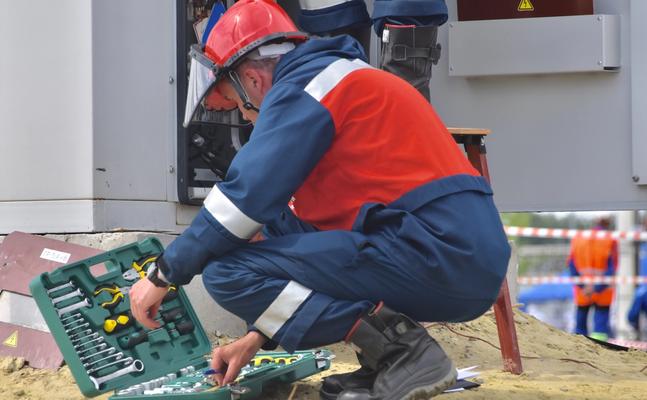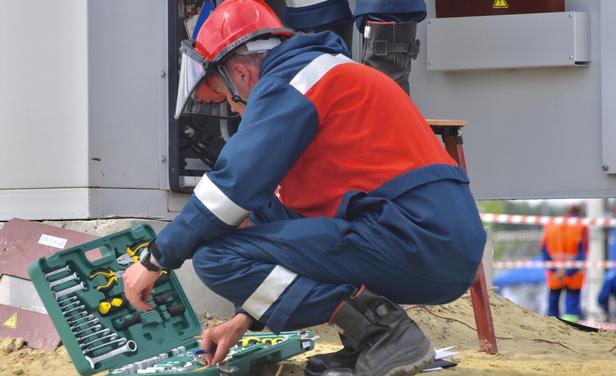It goes without saying that everything is being impacted by the job market right now. With more than 47 million people quitting their jobs in 2021 to seek a work-life balance, employers are facing serious repercussions. Many companies are looking to increase compensation and wages to retain their employees but are struggling to find the balance. With a large move to remote work due to COVID-19, many Americans hoped to set their sights on staying home after the pandemic ended. Gallup found that more than 91% of US workers were hoping to continue working from home, and more than three out of 10 workers said that they would find new employment if they were called back into office.
Many businesses are looking to find different and innovative ways to retain their employees and ensure their happiness. In the property management world, companies have been able to keep their employees by using tools that make their staffs' lives easier and more efficient. During the pandemic, properties began to digitize their processes and create contactless ways for prospective residents to experience properties.

With many multifamily communities showing signs of deterioration due to reduced upkeep during the pandemic, properties are seeing a large increase in their maintenance work and demand.
Property owners will eventually need to find new ways to preserve their assets in order to lessen the effects of neglect and depreciation due to the widespread workforce shortage.
Why Properties Are Struggling To Retain Maintenance Staff
The workforce crisis has been affecting American businesses for years now, but the pandemic has only exacerbated the issue. The property management industry is no different – in fact, they may be hit even harder.
One of the main reasons that properties are struggling to retain maintenance staff is because of the increased workload. As a result of the Great Resignation, many property owners are understaffed. Because of the high need for maintenance employees, properties believe they may continue to enter situations where maintenance staff is hired without certificates or expertise. Many maintenance workers expect a high salary and a wide range of benefits and will refuse to work at a property if they don't receive said benefits. Some property managers are reporting that maintenance personnel refuse to accept jobs unless they have free housing and unlimited flexibility. This type of situation occurs far more often than expected and is affecting hundreds of property teams across the country.
A consistent maintenance worker is critical to a building's health and long-term viability. These professionals are familiar with a building's weak points and may even notice areas where the building is exhibiting symptoms of wear and tear. Many managers are overwhelmed with tickets that are taking far longer to process than they should. They're trying to figure out how to balance running 15 tickets per day when they should only be handling five to eight.
Some property managers are losing valuable time because they’re spending it training new personnel while neglecting maintenance issues. Most property owners are trying to find new ways to maximize their time while keeping property staff happy. Property managers are beginning to look to technology to help. Some managers are turning to smart home automation to cut down on administrative tasks. Research has shown an increase in operating efficiency by over 60% in properties that use smart home automation. This technology makes it easier for property managers and maintenance personnel to streamline operations, manage work orders, communicate between teams, integrate with property management systems, and more. As a result, communication between the maintenance and property teams is shortened, and the maintenance staff is better equipped to do tasks quickly.
Looking to Alternate Staffing Models and Solutions
Many property owners are still slow to adopt smart home technology and instead rely on third-party maintenance services, which puts a strain on their residents and the property. When a property is turned over to a third-party maintenance company, the resident is expected to be present and may face liability issues if they aren’t. These liability issues can include lost or stolen property, damaged goods, security breaches, and so forth.
Many companies are resorting to alternate staffing models, such as hiring property specialists. Property specialists are licensed and insured general contractors who offer property support and can help with different repairs around the building. These property specialists are on call for the properties and act as both customer service representatives and on-site maintenance workers. This model eases the burden on the property managers and maintenance personnel but isn't a sustainable solution. It is challenging for property specialists to possess the kind of specialized knowledge that an on-staff maintenance employee would have.
The multifamily industry, in particular, is feeling the consequences of the Great Resignation. In order to keep maintenance staff, property owners need to provide them with a competitive wage, good working conditions, opportunities for career growth, and the proper systems and tools to make their job easier. Maintenance workers are in high demand because they have the skills and knowledge that are necessary to keep a property running smoothly.
One of the best ways to keep maintenance staff is to offer a competitive salary. In addition to offering a competitive salary, property owners should also provide maintenance staff with good working conditions. This includes providing them with the necessary tools and equipment to do their job properly. Offering maintenance staff these opportunities will show them that there is an investment in their future.
How Technology Has Changed the Industry
Many properties have begun looking toward smart home technology as a retention solution. This has enabled teams to complete their jobs faster and tend to more resident requests. Smart home automation has saved property managers countless hours of time, improved the experience for property managers and maintenance workers, and boosted the flexibility and efficiency of their teams. When a maintenance issue arises, such as a burst pipe or a damaged toilet, smart leak sensors can generate an automated work order for maintenance staff to complete. More than 23.5% of consumers mentioned water-related issues in their community as the reason for their problem, according to Property Meld research . If important aspects of the maintenance process are automated, it saves time and energy for the more than 39 million people who call apartments home in the United States.
SmartRent has been addressing this issue in a number of communities nationally. SmartRenthas\helps solve this issue and has been able to detect over 3,600 verified leaks, helped over 7,300 potentially compromised floors, and has automatically generated maintenance orders. Smart home automation equips property staff with the necessary resources to handle the complex problems they encounter. This is only one of the very few products that smart home technology offers.
When smart home technology is fully integrated into a property, it’s able to increase leads through Self-Guided Tours, automate move-ins and move-outs, reduce utility costs, allow for increased rental rates, generate ancillary revenue, and more. When operations are automated, property staff may feel less restricted and benefit from an enhanced work environment. Undoubtedly, smart home automation plays a significant part in how building owners are able to keep their staff happy.

Smart Home Ideas and Technology Help Retain Property Staff
As the demand for quality staff decreases and the number of multifamily units increases, it is essential that building owners investigate every option to ensure their property is running as efficiently as possible. By utilizing smart home automation, building owners can take advantage of opportunities to cut time-consuming tasks from the to-do lists of their employees. Additionally, this technology can provide property staff with the ability to detect and quickly fix potential issues, which may improve resident satisfaction. While there are still many other staffing strategies that building owners can explore, it is evident that automating certain tasks and processes can help properties run more smoothly. Ultimately, this may help to keep maintenance staff employed at your property.
Curious to learn more about how SmartRent helps simplify property maintenance? Request a demo and we'll follow up with you shortly.

